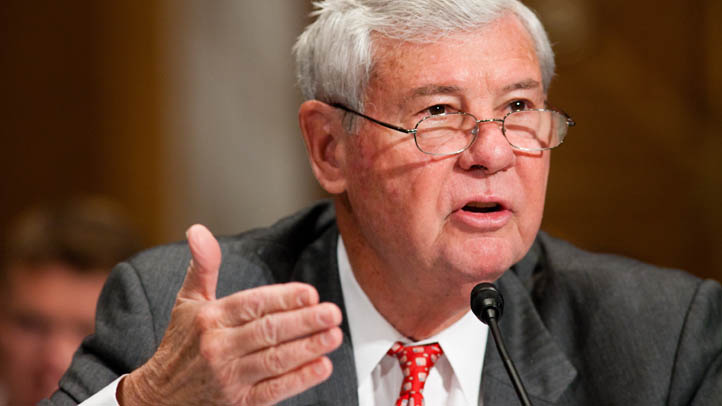And you thought the down economy made it hard to sell your home?
New scientific data says the sea is rising faster than anyone thought and under worst-case scenarios, much of Miami and South Florida could be under water by the end of the century, unless drastic measures are taken soon.
Some of the world’s leading experts on Arctic climate change are meeting in Miami this week to share the newest science and plot the course for future science.
What does the Arctic have to do with Miami? Everything.
Just ask Lester Hernandez. He and his family live several miles from the beach. But new scientific projections of accelerating sea level rise say, within our lifetime, hurricane storm surges could reach his neighborhood and nearly all neighborhoods east of I-95.
Local
"To tell you the truth,” said Hernandez as he strolled on the sidewalk in his South Dade neighborhood, “I wouldn't have imagined it."
The challenge is this: the cause of this slow, insidious rise in the sea level is coming from thousands of miles away at the Greenland ice sheet. Additionally, new data says the polar ice cap will be completely without ice during a summer within a few years, which compounds the problem under the Florida sunshine.
That is the heavy burden carried by the world’s top Arctic scientists studying the worsening crisis at the top of the world. So it's entirely relevant that they came to Miami, which lies only feet above sea level.
"So the combination of heavier development on the coast and rising sea levels coupled with hurricanes,” said University of Miami Rosensteil oceanographer David Kadko, “Even if they were not more destructive - and there are arguments that they will be more destructive because of climate change - will cause huge amounts of destruction of property and, of course, our insurance rates will go up."
It's not just storm surge from hurricanes that threaten South Florida. Climate change here already means more diseases from insects, more acidic oceans that threaten our seafood, dying coral reefs, salt-tainted drinking water, extreme weather events, more polluted coastlines, more expensive food, and should the gulfstream shift as some experts fear, Florida’s famous subtropical climate will change.
Yet climate skeptics and scandals are convincing more and more of the public that the science is wrong. "The world's greatest hoax," said one politician.
"It is hard to believe for me, in a time when we have such sophisticated technology where people have the facts that they choose to ignore the facts, and go with emotion and almost a faith-based reaction," said Peter Schloesser of Columbia University and chair of the conference organizing committee. "So in that sense it is clearly disappointing. At the same time, we have to overcome that and keep doing our work."
The climate policy debate is currently a tussle between weakening political will and rising public skepticism.
The debate from skeptics who are non-scientists hits Kadko hard. “Absolutely. It's very frustrating. I think it's a great disservice to the populace not to get a clear, fair debate,” he said.
The public skepticism “does not impact the work we are doing,” said Schloesser. “It certainly does affect the emotional state of my colleagues. They do feel that science is marginalized at a time where it has a lot to contribute the understanding of the future of the planet.
"But in essence the work that we have to do, that we set out to do, is continuing in spite of some of the criticism.”



